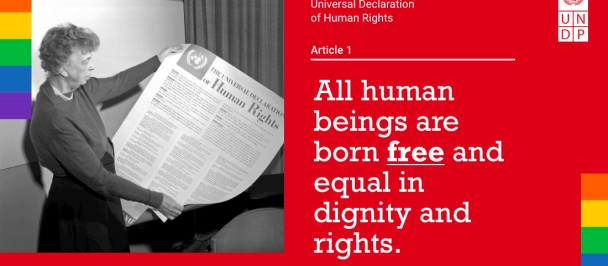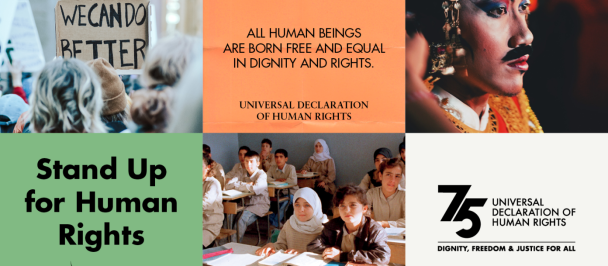Remarks by UNDP Administrator on the 55th Session of the UN Human Rights Council
February 26, 2024
AS DELIVERED
Distinguished President of the UN Human Rights Council,
Mr. High Commissioner,
Excellencies, Ladies and Gentlemen,
At the outset, I would like to take this opportunity to congratulate His Excellency, Ambassador Omar Zniber on his election as President of the UN Human Rights Council.
It is a privilege to address the UN Human Rights Council, which convenes against the backdrop of an ever more profound global contradiction.
Many parts of the world have made major strides forward in human development in recent decades, including hundreds of millions of people escaping poverty.
Even as humanity has achieved so much, human rights have been very frequently backsliding globally and our world faces its highest levels of violent conflicts in nearly 80 years.
Indeed, many of those conflicts and crises are the product of a deficit in human rights and a chronic under-investment in development.
The evidence demonstrates that rights and development are interdependent and reinforcing: we cannot really make progress on the Sustainable Development Goals without respect for and investment in human rights and vice versa.
In this respect, I would like to highlight three vectors of change.
First, we must strengthen the link between human rights policy and implementation on the ground.
At the UNDP, we work alongside governments to translate human rights recommendations, provided through the Universal Periodic Review and treaty body mechanisms, into concrete strategies and policies.
For example, consider Uruguay, which UNDP supported to advance UPR recommendations on developing alternative measurements to imprisonment while fostering South-South cooperation to improve conditions in prisons.
Or look to Ukraine, where UNDP has assisted its National Human Rights Institution to develop a five-year strategy to effectively address challenges arising from the war through the provision of vital support like legal assistance.
Second, the entire international community must accept that climate change has now emerged as the greatest-ever threat to human rights.
That involves embracing the concept of foresight and taking decisive early action if we are to secure the rights of future generations.
This is reflected in UNDP’s new Human Rights Pledge.
It encompasses efforts to support 100 countries to put the newly recognized right to a clean, healthy, and sustainable environment into practice across the globe by 2030.
UNDP is also working alongside businesses to guide them in conducting due diligence to better protect the right to a healthy environment throughout their global value chains, and with judges, and prosecutors and lawyers.
In this vital field, UNDP is partnering with governments and companies in 38 countries at the moment to support the implementation of the UN Guiding Principles on Business and Human Rights.
Finally, as the world works towards the Summit of the Future this year, we must ask: how do we foster a system that better values the rights of both people -- and planet?
As part of this process, UNDP is advancing the thinking on going ‘beyond GDP’.
This involves defining what matters to people -- including their human rights, well-being, and agency -- and combining it with a forward-looking lens that considers planetary pressures.
This process will also consider how the normative framework of international human rights principles and standards can become a constituent part of the new metrics of progress.
Distinguished President of the UN Human Rights Council,
Excellencies, Ladies and Gentlemen,
Alongside key partners like the UN Human Rights Office, UNDP is helping to ensure that human rights remain the guiding principle through which we are able to advance sustainable development globally.
This is inextricably linked with upholding the rule of law – together this is the critical foundation for more political stability and democratic governance. A breakdown of these principles puts people and planet in jeopardy.
Indeed, development powered by human rights remains perhaps the most compelling ‘exit strategy’ from conflict, crisis -- and uncertainty -- across the world.
Thank you for this opportunity to address you today.

 Locations
Locations



